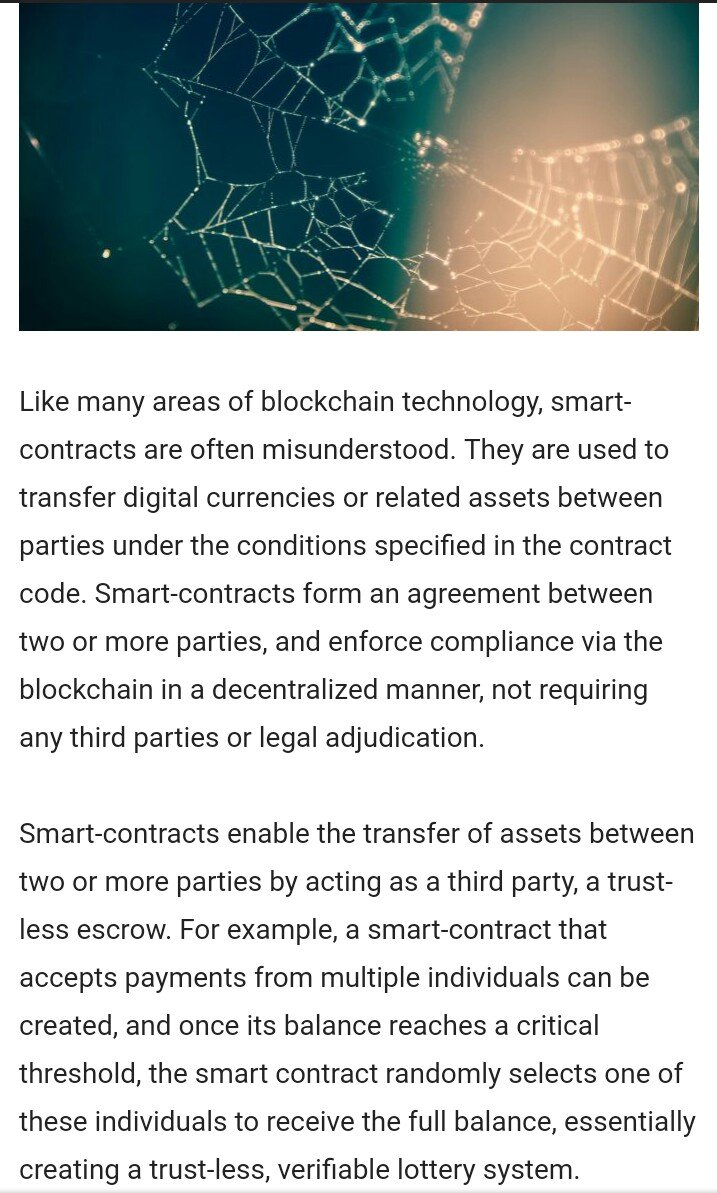
Crypto News - News from bitcoin world and other cryptocurrencies
Home Alt coins NEO: The Future of Smart-Contracts?
ALT COINSBLOCKCHAIN TECHNOLOGYOPINION
NEO: The Future of Smart-Contracts?
By Zoran Spirkovski - May 30, 2018
Facebook Twitter
As one of the frequently discussed features of cryptocurrencies, smart-contracts are perhaps the most disruptive component of blockchain technology. First proposed in 1994 by the cryptographer Nick Szabo, smart-contracts were initially described to be functional upgrades of their paper-based predecessors and containing the protocols and terms necessary for one or more parties to execute a self-fulfilling contract.
Today, smart-contracts are essentially digital contracts that operate via blockchains and contain instructions which are executed when set conditions are met, allowing you to automate and decentralize almost any exchange of assets.
What are smart-contracts?
Like many areas of blockchain technology, smart-contracts are often misunderstood. They are used to transfer digital currencies or related assets between parties under the conditions specified in the contract code. Smart-contracts form an agreement between two or more parties, and enforce compliance via the blockchain in a decentralized manner, not requiring any third parties or legal adjudication.
Smart-contracts enable the transfer of assets between two or more parties by acting as a third party, a trust-less escrow. For example, a smart-contract that accepts payments from multiple individuals can be created, and once its balance reaches a critical threshold, the smart contract randomly selects one of these individuals to receive the full balance, essentially creating a trust-less, verifiable lottery system.
Once a smart-contract has been signed and uploaded to the blockchain, it is essentially immutable, and cannot be manipulated by those involved in the agreement. This permanence means that any issues in the underlying code cannot be altered at a later date, highlighting the importance of expertly crafted code to prevent potentially disastrous mishaps. Nowadays any code operating on a blockchain virtual machine is generally called a smart-contract, regardless whether it has contract functionality or not.
First up: Ethereum
Ethereum is the major cryptocurrency associated with smart-contract functionality, released in July 2015, Ethereum enabled the development of smart-contracts using its own custom contract-oriented programming language named Solidity.
Since then, numerous other cryptos have begun offering similar functionality, including Cardano, Waves, and Qtum. However, none of these have managed to garner the community that Ethereum has, with Ethereum remaining by far the most popular blockchain for smart-contracts. However, since Solidity is relatively recent, there are few developers proficient in its syntax, and even fewer able to call themselves experts. Furthermore, because it is so new, there are very limited resources available for the language. Whilst the Solidity documentation is extensive, it is heavily geared towards people with a programming background, but is of little to no worth to those without extensive programming knowledge in similar languages.
Because of these limitations, most smart-contracts created in Solidity are rudimentary and have often been criticized for being unnecessarily resource-intensive and expensive to run. These complaints have to lead to the development of several alternative blockchains that seek to improve on Ethereum’s smart-contract functionality.
Smart contract are the projects running on other's blockchain.
I Think Neo Future I good now if we invest then after 1 or 2 years we will earn 200% in profit what your's opinion
Correct said👍
That is so so wonderful
Thanks
Quit spamming the same useless reply out on every post.
I dont understand